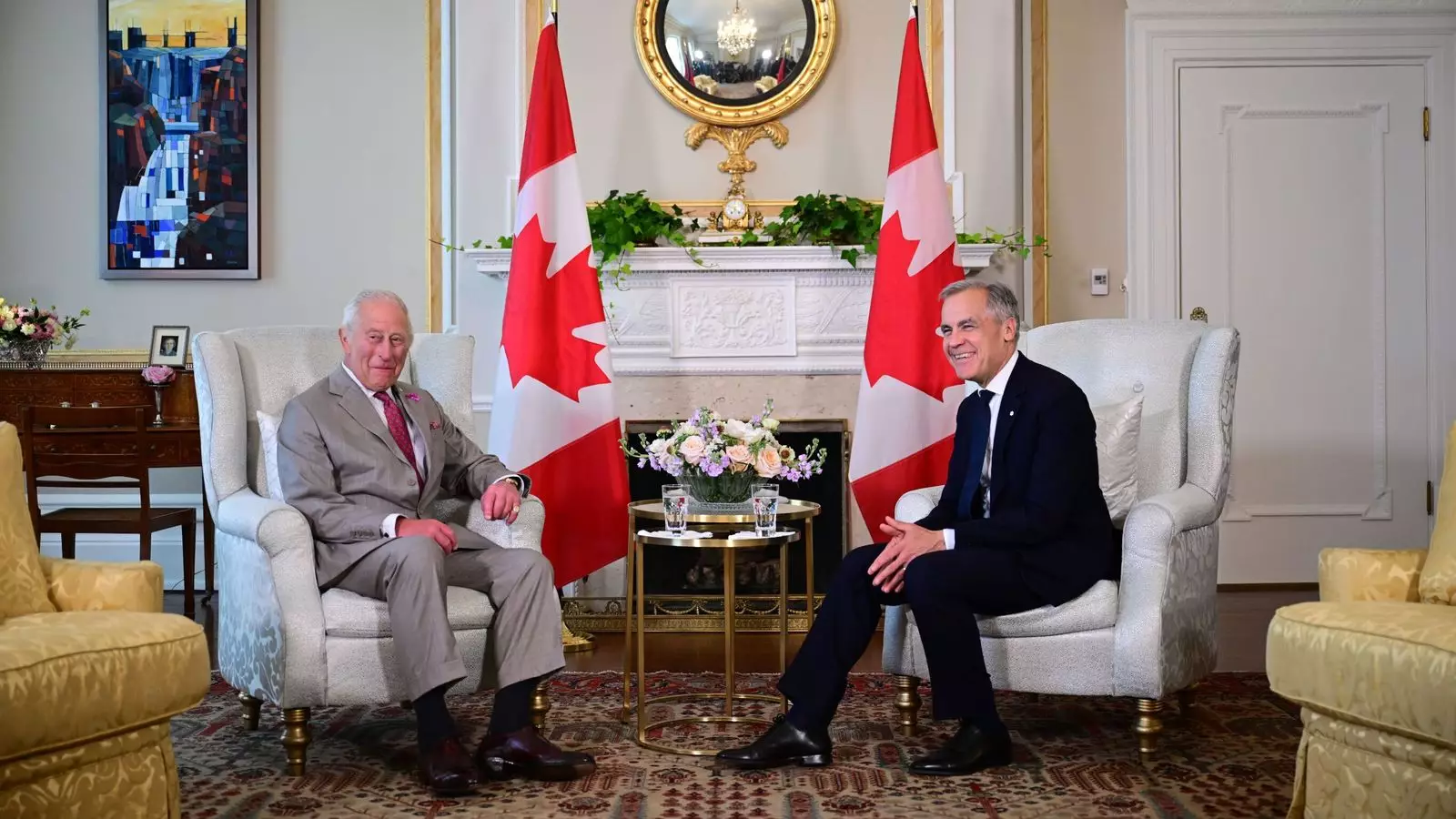As King Charles and Queen Camilla embark on their visit to Canada, a critical opportunity emerges—not just for royal engagement, but for a historical reckoning that can no longer be delayed. Campaigners advocating for the rights and recognition of British children, who were wrongfully displaced and abused, believe this moment is pivotal. The so-called “Home Children,” who numbered more than 100,000 between 1869 and 1948, symbolize a dark chapter in not only Canadian history but in the legacy of British colonial recklessness. It is time for the monarchy to embrace its influence and take a stand, demanding an official apology from the Canadian government for the suffering inflicted upon these vulnerable children.
The narrative of the Home Children is one of hope turned tragic. Orphans, often labeled as mere commodities, were shipped from British orphanages to Canada under the guise of offering a better life. Instead, they primarily served as cheap labor—agriculture and domestic work defined their existence in a foreign land where many faced unspeakable abuse. The legacy of these children is not only one of neglect but also of systemic oppression, as they became unwanted burdens—essentially second-class citizens in a land that was meant to be a refuge. How can an institution as revered as the monarchy fail to acknowledge and apologize for such gross moral failings?
The Role of the Monarchy in Reckoning History
King Charles has a unique place in history as he takes on the role of the Head of the Commonwealth. His visit to Canada presents an unparalleled opportunity to confront Canada’s historical wrongdoings. Instead of merely celebrating the Commonwealth’s accomplishments, why not introspectively recognize the cost at which these were achieved? John Jefkins, a descendant of one of the Home Children, articulated this sentiment poignantly when he urged Charles to seek an apology during his visit. Apologies derived from power and influence carry immense weight; they can initiate healing and foster understanding in the wider community.
The reluctance of the Canadian government to follow the lead of countries like Australia and the United Kingdom in formally acknowledging this injustice is puzzling. It raises questions regarding Canada’s ongoing relationship with its colonial past. By resisting calls for an apology, are we not complicit in allowing historical amnesia to persist? By failing to recognize the pain experienced by the Home Children, Canada risks stifling the voices of those still affected today.
The Moral Responsibility of Leadership
It’s essential to understand that this request for acknowledgment is not merely a matter of formality; it’s about accountability and moral responsibility. The monarch’s position is not just ceremonial; it carries a significant ethical obligation to act on behalf of those historically marginalized. In addressing the realities of colonization, the monarchy has a chance to display empathy and leadership that transcends tradition, positioning itself firmly in support of those whose voices have been silenced for too long. King Charles and Queen Camilla must not shy away from proclaiming justice as a central theme of their visit.
Moreover, this moment in time is not just an echo of the past; it is about shaping future relationships. Echoing the sentiments King Charles expressed during his previous remarks about confronting the “darker and more difficult aspects of the past,” it’s pivotal that he assertively addresses these issues now. The reluctance to confront past injustices only inhibits progress and inhibits the development of a more inclusive narrative for both Canadians and Britons.
As a nation, Canada prides itself on values of equality and human rights. But how can it claim such ideals while ignoring the plight of the forgotten children who significantly contributed to its agricultural backbone? It’s time for King Charles and Queen Camilla to embrace this moment, not just to wax poetic about Commonwealth unity but to champion rectitude, demanding legally and morally what should have been publicly acknowledged decades ago: an apology for the abuse of those innocent children. In doing so, they will not only connect with their subjects but also restore dignity to the stories that shaped both nations.

